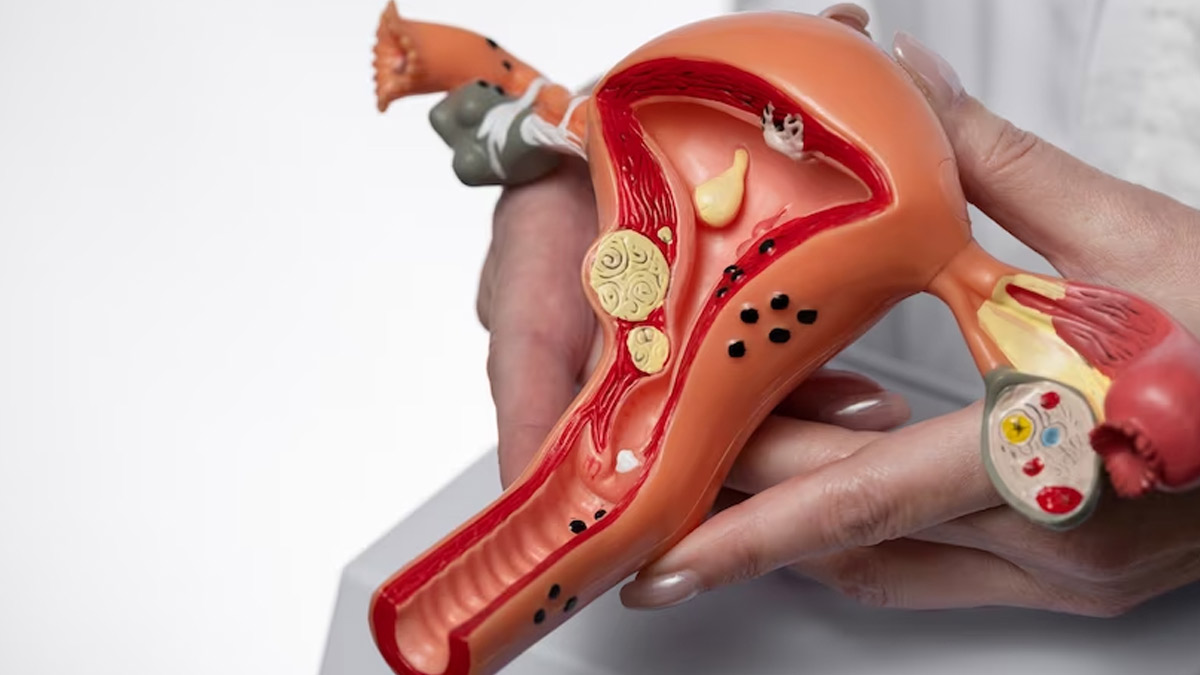
Polycystic Ovary Syndrome (PCOS) is a common reproductive issue in women associated with abnormal menstruation, hormonal imbalances, and infertility. Healthy lifestyle habits including diet are key in managing PCOS symptoms. Speaking with the OnlyMyHealth team, Tanisha Bawa, Gut Health Expert and Certified Nutrition Coach, Founder of TAN|365, discusses how the two are related and shares a list of foods that can support and negatively affect PCOS management.
Also Read: What Could Long-Term Leg Numbness Mean? Possible Reasons To Note
Role Of Diet In Managing PCOS

According to the World Health Organization (WHO), an estimated 8–13% of reproductive-aged women suffer from PCOS, of which 70% remain undiagnosed worldwide.
“PCOS, a common syndrome in women, affects three hormones: androgens, insulin, and progesterone,” said Bawa, adding, “The reproductive endocrine system, which interacts with oestrogen, androgens, insulin, and other hormones, is significantly influenced by the gut microbiota throughout a woman's life.” According to the nutritionist, when the balance between beneficial and harmful bacteria is disrupted, it results in a condition known as Gut Dysbiosis. “Research indicates that women with PCOS have dysbiosis and less diverse gut bacteria, with higher levels of androgens correlating to lower gut bacteria diversity. Additionally, individuals with PCOS often have a compromised gut lining, which allows harmful toxins to enter the bloodstream,” she added.
Diet can play a significant role in managing PCOS. While there is no one-size-fits-all approach, adopting a healthy diet can help improve symptoms and promote overall well-being. In fact, a study published in Nutrients suggests that a low-calorie diet with reduced Glycaemic Index (GI) can help manage PCOS symptoms.
Foods To Eat And Avoid

Here are the foods you should eat and avoid if you have PCOS:
- A diet with a high glycaemic load, characterised by excessive sugar and refined carbohydrate intake, causes blood sugar levels to spike. This constant elevation of blood sugar leads to insulin resistance, as the cells responsible for energy conversion become less responsive to insulin, contributing to PCOS.
- Hormones are produced from fats. Therefore, consuming good quality fats is essential for our hormonal heath. These include fatty fish, avocados, olive oil, nuts, and seeds.
- Inflammatory foods can cause severe inflammation in your gut lining which leads to poor hormonal health causing issues like PCOS. Therefore consuming anti-inflammatory foods such as tomatoes, kale, spinach and the likes would be beneficial.
- Increase your fibre intake by consuming foods like whole grains, fruits, vegetables, and legumes. Fibre helps regulate blood sugar levels, improve satiety, and support digestive health.
- Minimise the consumption of highly processed foods, as they often contain added sugars, unhealthy fats, and artificial additives that can worsen PCOS symptoms.
Also Read: Common Mistakes That Can Ruin Heart Health
Symptoms Of PCOS

Some of the common symptoms of PCOS to note include:
- Irregular menstrual cycles
- Excessive hair growth (hirsutism)
- Acne
- Weight gain and difficulty losing weight
- Insulin resistance
- Polycystic ovaries
- Mood changes
Conclusion
It's important to note that not all individuals with PCOS will exhibit the same symptoms, and the severity can vary. Consult with a healthcare professional for an accurate diagnosis, talk to a registered dietitian who specialises in PCOS management.
Also watch this video
How we keep this article up to date:
We work with experts and keep a close eye on the latest in health and wellness. Whenever there is a new research or helpful information, we update our articles with accurate and useful advice.
Current Version
